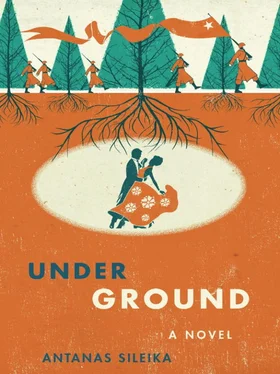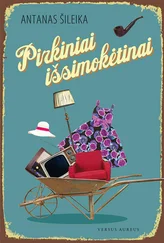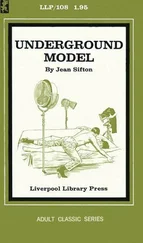He and Lakstingala went into the other room to change out of their wet clothes. There was a ceramic wall shared by the two rooms, a built-in wood-burning furnace that was warm to the touch. Lukas hung his clothes from nails nearby and then leaned against the tiles for the warmth that radiated through his back. Soon he would turn to warm his other side.
There was a noise outside and shortly after that the door to their room opened and Almis poked his head inside.
“Some slayers just pulled up in the yard in a car.”
“How many?” Lakstingala asked.
“Just two. But one of them is a drunkard named Imbrasas who keeps coming here to threaten us and to make eyes at Vida.”
“I can deal with them for you, if you want,” said Lakstingala.
“No, please. We have a baby in there and Vida’s sensitive. They’re not here to search the house. They come for alcohol and food and to terrorize us a little. Just be very quiet in here and they might go away after they’ve eaten and I’ve given them a little liquor for the road.”
Lakstingala nodded. He put a revolver in his pocket and stood by the wall on the other side of the ceramic oven with his assault rifle in his hands at the ready. Lukas prepared himself for a fight as well, crouching behind the door to look through the keyhole into the next room.
The sergeant who came in with his escort was stout, his hat tipped back slightly on his head so the bill pointed up jauntily. His uniform was a little too tight and one button of his tunic was undone over his belly. He carried only a sidearm, but his soldier had a rifle in his hands. Slayers had not dared to travel in pairs in the past, before Lukas had left Lithuania. Back then they had moved in packs. It was a depressing sign of their new-found confidence that the two came as they did, unescorted.
“You can wait in the car,” said Imbrasas.
“It’s safer if we stay together,” said the soldier.
“Afraid?”
“For your safety, yes. This is a lonely place.”
“I know what I’m doing. Get out there, and I’ll bring you something to make it worth your while.”
The baby in the crib cried out once as the driver left, but then settled back to sleep when Vida pushed the cradle and it began to swing from the beam again.
Imbrasas, the slayer who remained behind, had been to the house many times before, sometimes with the troops and sometimes on his own. He kept a flock of farmers like these, small landowners who hadn’t been collectivized yet, ones who could be visited in a circuit for food or liquor. He considered himself their protector, for he was important enough as a slayer to hold off others of his kind, and even had a little influence among the lower levels of the Cheka, where he hoped to make a career.
His protected herd of farmers was milked in rotation, with one exception: Almis, or more precisely his wife, Vida. He developed an interest in her that grew to fondness and blossomed into obsession through her pregnancy, and this passion continued to grow after she gave birth. His attraction was foolish, and he knew it and tried to suppress it by any means possible, primarily alcohol.
But the alcohol didn’t really help; it merely changed the nature of his fixation. When he drank, Imbrasas began to feel underappreciated for all the help he had given her against the baser elements in the Cheka. Most of the farms in the district had been collectivized already, but not the one belonging to Almis and Vida. If he had been like some of the grosser slayers, he would have had the husband deported and kept Vida for himself.
Imbrasas congratulated himself for not having done so, but the drunker he became the more he began to feel offended that his good works had not been recognized. How the young couple should have known what he had done for them and how they should have paid him back was unclear to him, but the sense of injustice remained in his mind and grew.
Almis went to the pantry and brought out three half-litre bottles of samagonas, one to drink from and two to give away. He cut a piece of smoked pork and wrapped it in a newspaper. He carved off a kilo of bread and brought it in as well. Vida had set out plates and cups and butter. She put fresh kindling into the cookstove and set the kettle on top.
Imbrasas watched this activity with growing impatience. They were behaving as if nothing were wrong, as if they were not aware of their debt to him, or if they were aware of it, they were ignoring it. He was particularly incensed by Vida, who remained silent as her husband talked about the weather and the farm, his animals and the crops, the only safe subjects in a politicized world.
But not safe enough.
The baby sensed Imbrasas’s mood better than her parents, and she began first to whimper and then to cry. Vida gave the hanging crib a push so it began to rock gently, and the baby quieted for a moment.
Almis poured out two small glasses of home liquor, and Imbrasas did not even wait for an invitation but drank up. He had been drinking all afternoon. Each man chased the liquor with a piece of bread and a little smoked meat. Almis could see that Imbrasas was following every move his wife made, and he tried to distract the man, but there was nothing much he could do about him because Imbrasas was implacable in his strange silence and brooding eyes.
The baby cried out and would not be stilled, even when Vida pushed the hanging crib again.
Almis poured another glass of liquor and invited Imbrasas to drink. In such circumstances the best strategy was to make the visitor drink a great deal and hope that he became drunk enough to pass out before he did any harm.
As the baby would not stop crying, Vida took her out of the crib and held her in her left arm as she worked at the stove with her right hand. She was all too aware of Imbrasas’s silence and her husband’s inability to do anything about it.
Vida went to the pantry and brought out a cup of flour, which she poured into a bowl, and then returned to get a cup of milk and two eggs, which she mixed with the flour to make into a batter. She tried to pacify the baby, who was wailing inconsolably now, sensing the tension in the room.
She put a large cast-iron frying pan on the wood stove and a minute later dropped a pat of butter into the pan, where it sizzled and sputtered.
“Comrade Imbrasas,” she said, “it’s a terribly cold and wet day, and the only way to comfort oneself on a day like this is the way our mothers comforted us when we were small—with crepes. I’ll fry up a batch of them and soon you’ll see how much better you feel.”
Vida was trying her best to help her husband, but she could not read the mind of Imbrasas, who had never been comforted as a child by his alcoholic mother. She had beaten him and starved him and his father had not been much better. Worse, Vida could not know that in his mind the offer of crepes was as good as an insult, a paltry compensation for his heroic efforts to save them from deportation. Here they were, warm and happy when so many others had been sent away, and all she could offer in thanks was a plate of pancakes. Such an insult was unbearable.
“Bourgeois capitalists, the both of you,” he spat. “I’ll show you comfort.”
Imbrasas snatched the baby from Vida’s arms and laid her on the sputtering frying pan, holding Vida off with his free hand. Handled roughly and thrown about, the swaddled baby wailed, but not so loudly as she would wail when the heat of the pan burned through to her tender skin.
The fat in the pan sputtered and snapped as it did when a piece of meat was put upon it. Above all this the mother shrieked and the baby wailed, but Imbrasas held Vida off and reached for his sidearm to keep Almis away as he fried the baby on the pan.
Lukas slammed open the door at the first screams, and Imbrasas looked at him in surprise, frozen for a moment. Almis moved quickly. Snatching up a dinner fork from the table, he drove the tines into the neck of Imbrasas before the slayer could get a proper hold of his pistol. Vida snatched the baby off the hot pan.
Читать дальше












